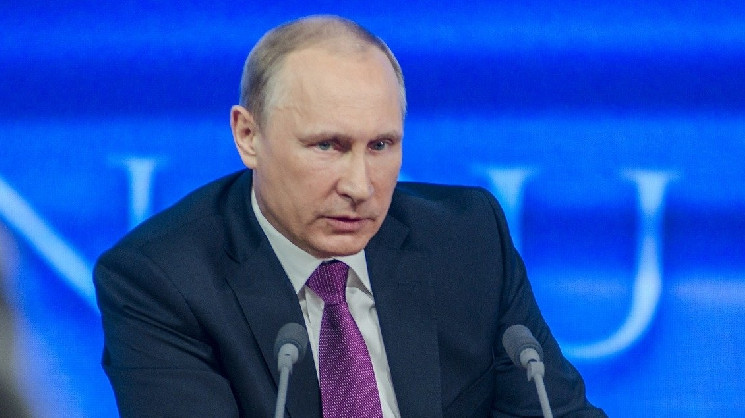Exiled Russian opposition leader Mark Feygin is launching an anonymous, blockchain-powered referendum on the legitimacy of Vladimir Putin’s victory in the Russian elections.
The voting will take place via an app called Russia2024, built using Rarimo’s Freedom Tool.
Vladimir Putin has just won his fifth term as Russian president, although the 87% election victory has been described as a landslide meant to be, staged and a farce.
Now exiled opposition leader Mark Feygin is leading an effort to provide Russians with an anonymous, blockchain-powered way to register a “protest vote” against Putin.
The results of this effort would obviously have no legal weight in Russia and would not necessarily end Putin’s presidency, but the referendum could theoretically provide a public relations boost to efforts to oust him. And it gives Russians a way to express criticism in a country where the consequences of dissent can be dire; opposition leader Alexei Navalny recently died while imprisoned in a penal colony in the Arctic.
The voting will take place via an app called Russia2024, built using Rarimo’s Freedom Tool, which will use the Arbitrum blockchain and zero-knowledge cryptography, making voters’ identities untraceable.
“Disagreements in Russia are becoming increasingly risky and public opinion is becoming increasingly difficult to follow,” Feygin said in a statement. He was expelled from Russia years ago, was named a foreign agent in 2022 and is still one wanted person in Russia. He is a former lawyer for the founders of the protest collective Pussy Riot. “It is critical that we provide reliable, surveillance-proof options for protest and polling. Russia2024 and the underlying technology made that possible,” he added.
Only holders of Russian passports can vote. All around 34.6 million Russians have a valid passport.
Users must download the Russia2024 app and prove their citizenship by scanning their passport with their phone. The passports are equipped with a biometric chip that the tool uses to confirm the voter’s identity and enable an anonymous vote. If someone does not have a smartphone, one phone can be used as a shared voting device.
Voting will be possible for about two weeks, and proponents of the tool are “confident” that it is a safe way to vote and that voters do not have to fear repercussions.
“Even after Navalny’s death, people came out and protested so that they will vote as a countermeasure against the outcome,” said Lasha Antadzem, co-founder of Freedom Tool, which has previously worked with the Ukrainian government to digitize the privatization of state assets. “Decentralized voting and the Freedom Tool are designed so that there is no single entity that can be attacked, blocked or removed. You can’t hack it, just like you can’t hack bitcoin.”
In the shadow of the war with Ukraine
Antadzem also has passports from Ukraine and Georgia. Putin’s victory is expected to give him the means to continue his war against Ukraine.
“We distribute the open source technology to everyone. It is not just Ukrainians or Georgians who are building,” Antadzem said when asked about the possible perception that this is supported by Ukrainian interests. “We have received many contributions through anonymous letters from cryptography professors in Russia. It is a kind of wartime defense technology.”
Antadzem, who spoke to CoinDesk from London, said the Russia2024 app was initially removed from the Apple App Store but expects it to be back online on Friday. The app is available in the Google app store.
Referendums are used around the world for a variety of reasons: identifying dissent in Canada, to succeed specific policies in Switzerland and to choose whether a region wants to remain united with a nation or not in Britain
The key global ‘real world use case’ is that it can ‘guarantee that authenticity’, that it can ‘reduce the cost’ of any election-related voting exercise ‘tenfold’ and that the technology can also be used by other countries. said Antadzem.

